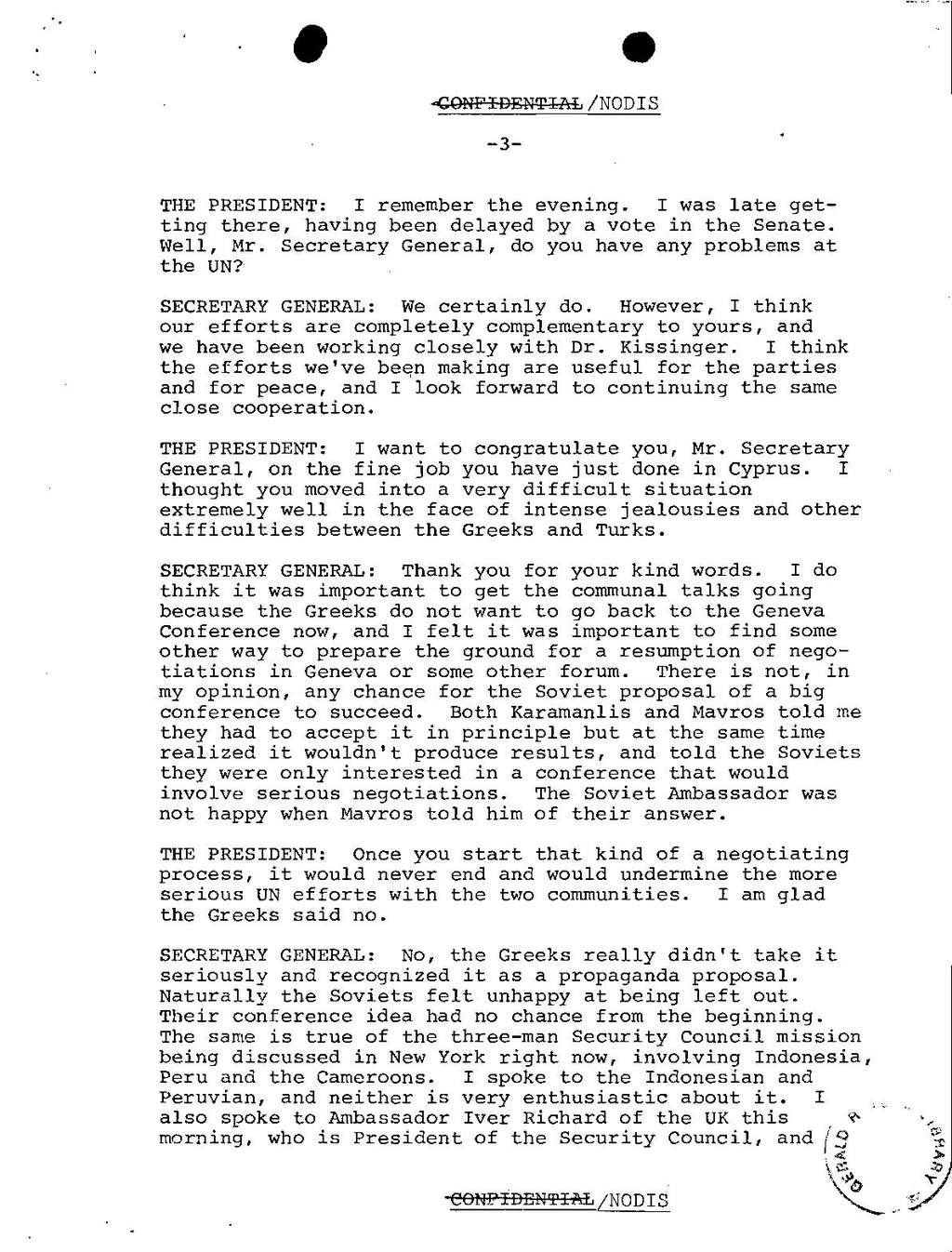CONFIDENTIAL/NODIS
-3-
THE PRESIDENT: I remember the evening. I was late getting there, having been delayed by a vote in the Senate. Well, Mr. Secretary General, do you have any problems at the UN?
SECRETARY GENERAL: We certainly do. However, I think our efforts are completely complementary to yours, and we have been working closely with Dr. Kissinger. I think the efforts we've been making are useful for the parties and for peace, and I look forward to continuing the same close cooperation.
THE PRESIDENT: I want to congratulate you, Mr. Secretary General, on the fine job you have just done in Cyprus. I thought you moved into a very difficult situation extremely well in the face of intense jealousies and other difficulties between the Greeks and Turks.
SECRETARY GENERAL: Thank you for your kind words. I do think it was important to get the communal talks going because the Greeks do not want to go back to the Geneva Conference now, and I felt it was important to find some other way to prepare the ground for a resumption of negotiations in Geneva or some other forum. There is not, in my opinion, any chance for the Soviet proposal of a big conference to succeed. Both Karamanlis and Mavros told me they had to accept it in principle but at the same time realized it wouldn't produce results, and told the Soviets they were only interested in a conference that would involve serious negotiations. The Soviet Ambassador was not happy when Mavros told him of their answer.
THE PRESIDENT: Once you start that kind of a negotiating process, it would never end and would undermine the more serious UN efforts with the two communities. I am glad the Greeks said no.
SECRETARY GENERAL: No, the Greeks really didn't take it seriously and recognized it as a propaganda proposal. Naturally the Soviets felt unhappy at being left out. Their conference idea had no chance from the beginning. The same is true of the three-man Security Council mission being discussed in New York right now, involving Indonesia, Peru and the Cameroons. I spoke to the Indonesian and Peruvian, and neither is very enthusiastic about it. I also spoke to Ambassador Iver Richard of the UK this morning, who is President of the Security Council, and
CONFIDENTIAL/NODIS
